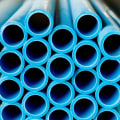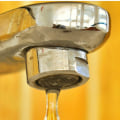When selecting a profession to pursue, job prospects are an essential factor to consider. Fortunately, the demand for plumbers is expected to increase by 12% over the next decade due to the rise in construction activity and the need for repair, renovation, and maintenance services to replace old pipes or install more energy-efficient systems. Reliable plumbers can easily generate a steady stream of work. Most careers require a college degree to begin, but with plumbing, one can start as an apprentice and gain the necessary experience.
Most plumbing companies accept applicants who have just graduated from high school. Another advantage of beginning a plumbing career as an apprentice is the opportunity to earn money while gaining work experience. This is not offered in most professions. However, there are some drawbacks that should be taken into consideration before pursuing a career in plumbing.
One of the main disadvantages of being a plumber is the physical demands of the job. Plumbers often have to work in cramped spaces and lift heavy objects. This can be difficult for those who are not physically fit or have back problems. Additionally, plumbers often have to work in uncomfortable conditions such as extreme temperatures or wet environments.
Another downside of being a plumber is the potential for injury. Plumbers often work with sharp tools and hazardous materials such as lead or asbestos. This can lead to serious injuries if proper safety precautions are not taken. Finally, plumbers often have to work long hours and on weekends or holidays.
This can be difficult for those who have families or other commitments that require their attention. In conclusion, while there are many advantages to becoming a plumber, there are also some drawbacks that should be taken into consideration before pursuing this career path.




Leave a Comment